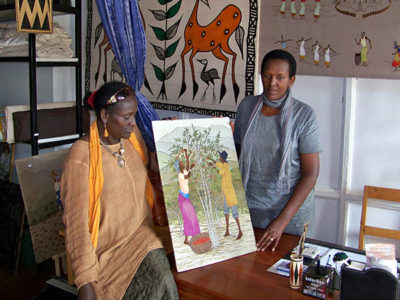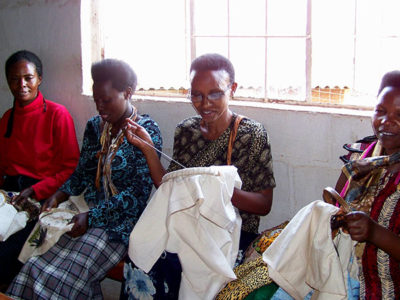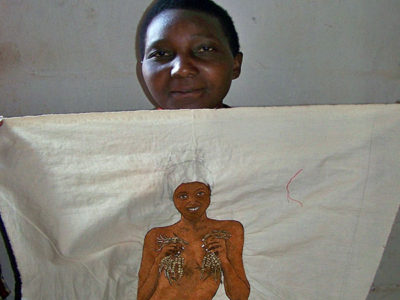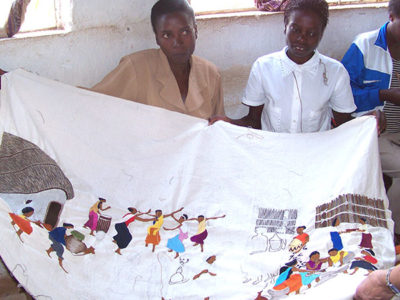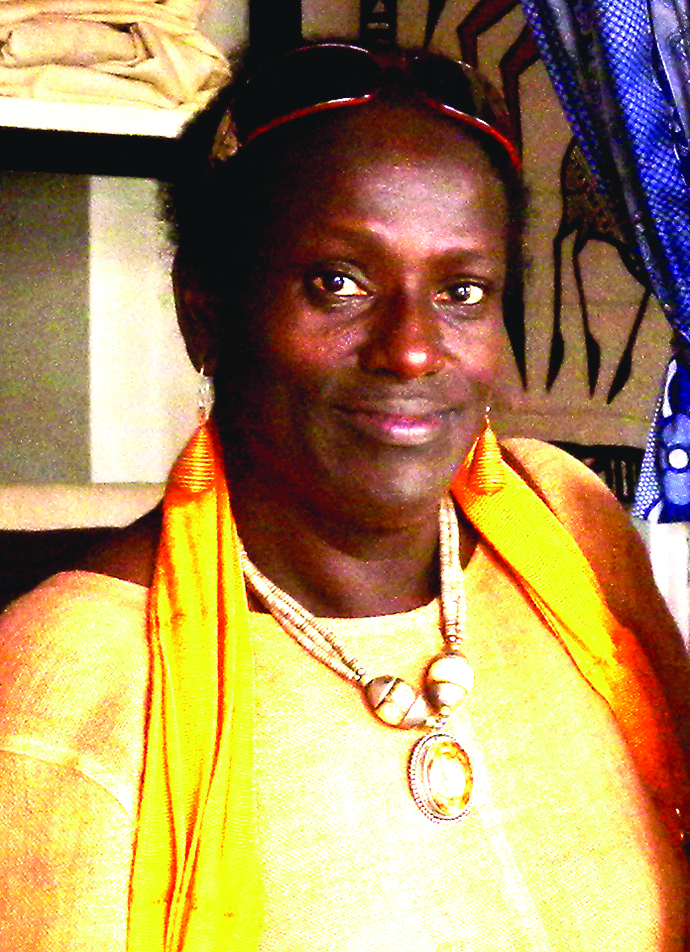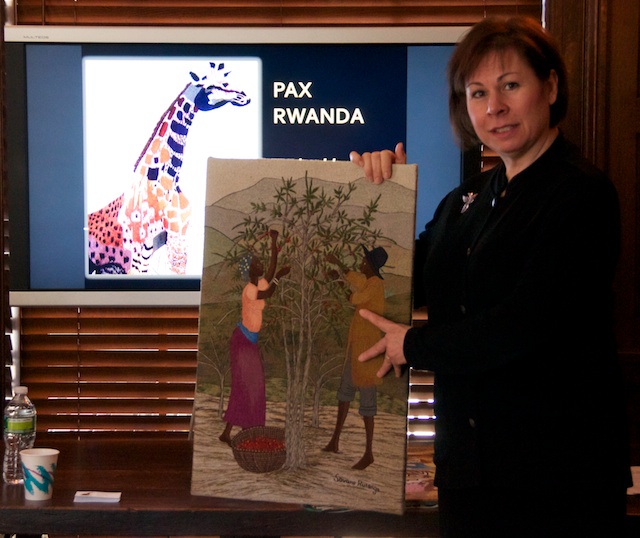Origin of the Embroidery Workshop
The embroideries of the workshop that became known as Savane Rutongo-Kabuye were created by a group of Rwandan women living in the aftermath of the 1994 Genocide Against the Tutsis. They came from both sides of the conflict, yet they put the events of the past behind them to work together in the hope that their children would have a better future.
Their workshop was begun by Christiane Rwagatare, a native Rwandan who wanted to help put women back to work in the aftermath of the genocide. Their first workshop was a modest cinder block building in the village of Rutongo in the hills above Rwanda’s capital, Kigali. It was in Rutongo that their techniques and style was developed and honed. It was here that they produced works of textile art that would would eventually be featured in the Rwanda’s National Art Gallery.
In 2010, curator Juliana Meehan discovered the embroideries of this collection in the small tourist shop run by Christiane called Mode Savane, which literally means “Savanna Style,” a nod to the lush grasslands of Rwanda. Meehan noticed that the works were not signed, and she urged the artists to begin signing their art. They agreed, however, because theirs is a cooperative undertaking–certain women draw the designs, others embroider the colors, still others wash and stretch the final piece–they rejected the idea of signing individual names on their works. Instead, they chose to sign as a group with the name Savane Rutongo, combining the name of Christiane’s shop with that of their village, Rutongo. Many works in the PAX Rwanda collection are thus signed Savane Rutongo. In 2014, the workshop moved to the town of Kabuye, and the artists began signing their works Savane Kabuye. Recently, in 2015, several artists who had quit the workshop and moved to the capital, Kigali, rejoined and began signing their embroideries with the name Savane Kigali. In the present collection all three names are seen.
The exhibit title PAX Rwanda: Embroideries of the Women of Savane Rutongo-Kabuye reflects this evolution of names. Although it may be confusing at first, it actually provides us with important information about where the pieces were produced.
Savane Rutongo-Kabuye is one of many collectives of artisans that reflect a larger phenomenon taking place all over Rwanda: reconstruction, reconciliation, and the desire for peace.
